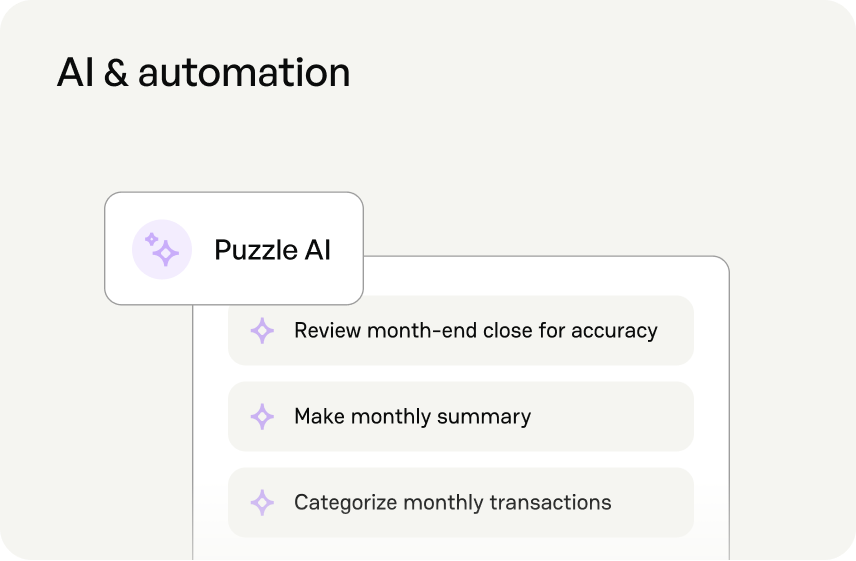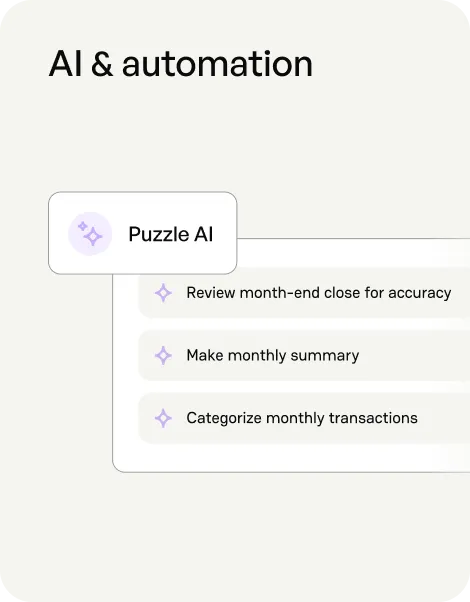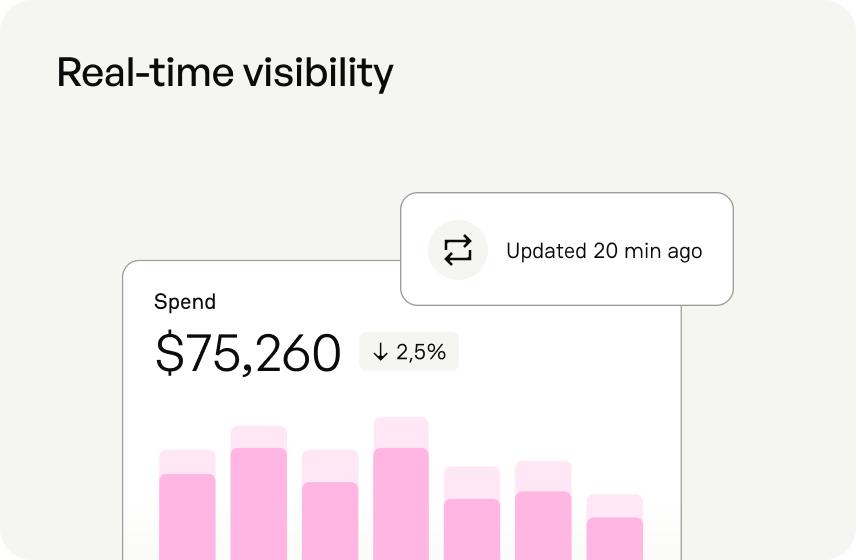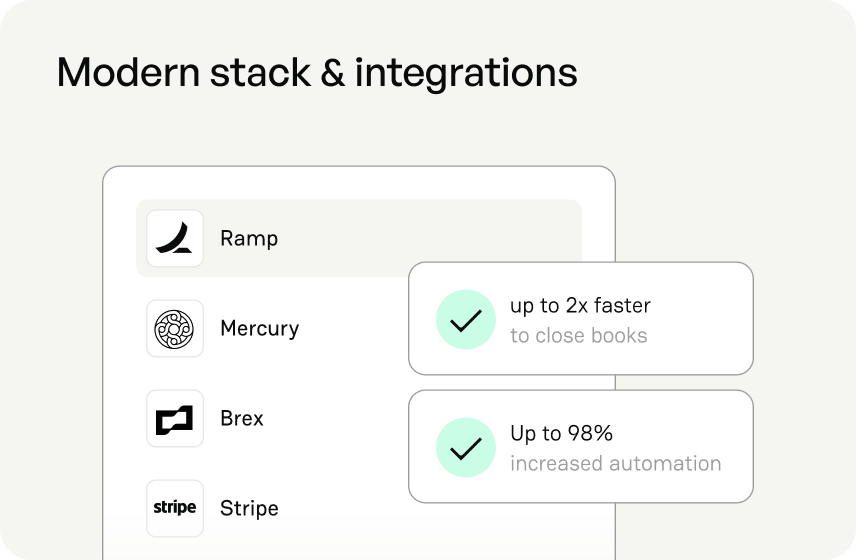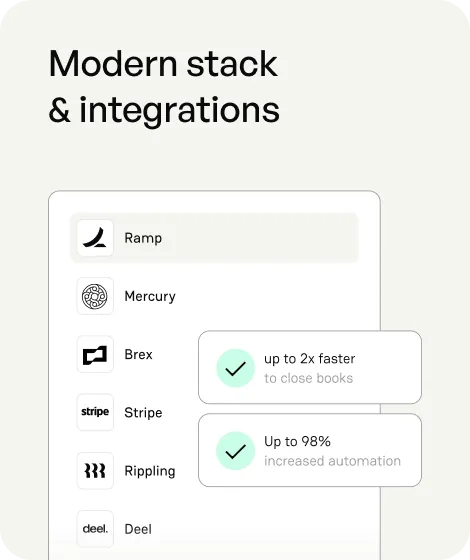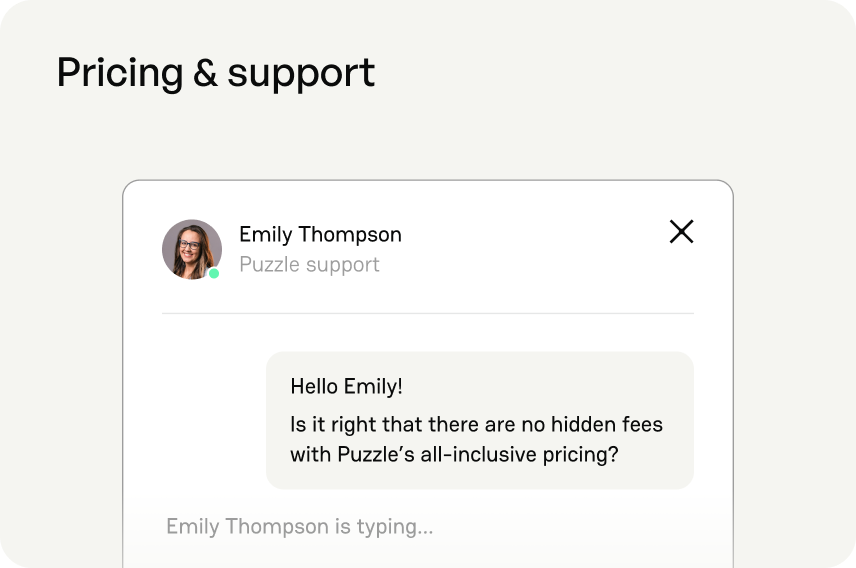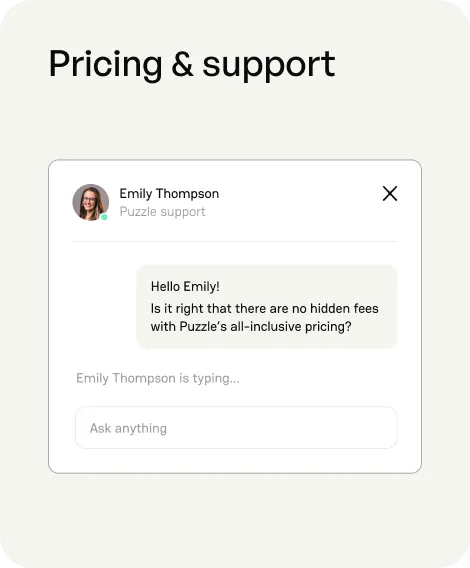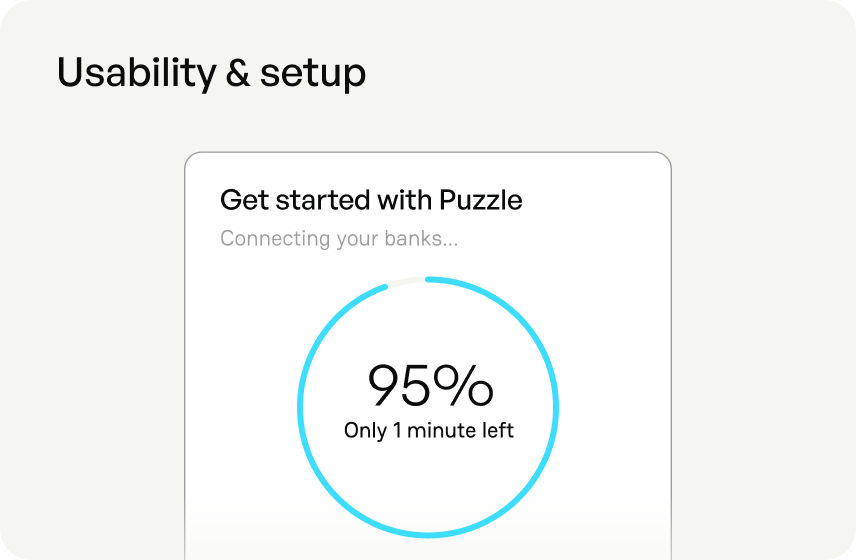

Ditch QuickBooks manual work for modern AI accounting
Stop wrestling with outdated software. Get AI-powered accounting that saves 20+ hours monthly and delivers insights that actually help you make decisions.
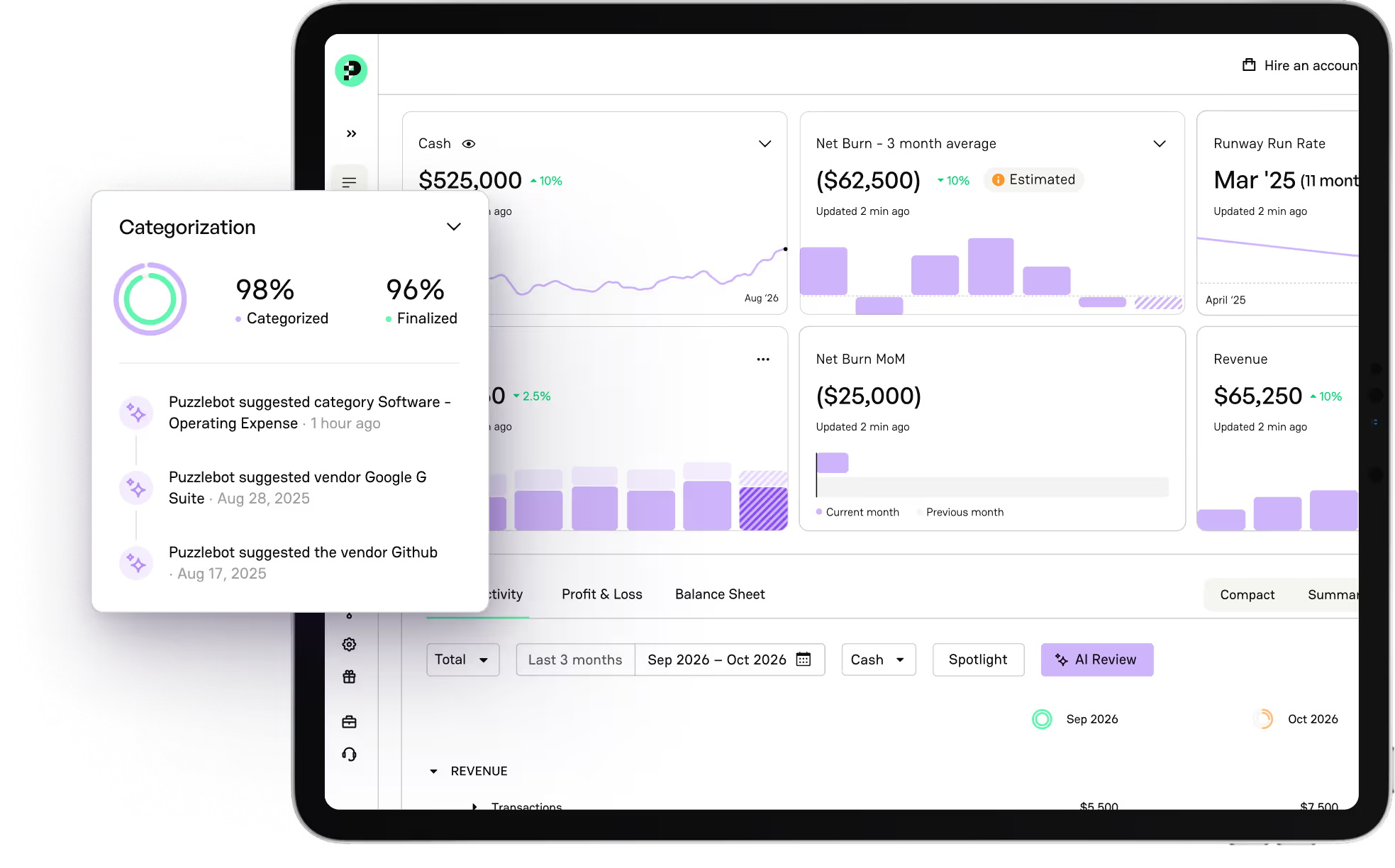
The problem with QuickBooks
“What used to be simple now needs multiple tools, yet my books still aren't accurate”
QuickBooks' 20-year-old architecture breaks with modern financial tools, forcing costly workarounds and constant price increases.
“I waste hours on manual bookkeeping tasks weekly”
Manual categorization, reconciliation, and data entry that should be automated. Every mistake costs more time to fix.
“I'm flying blind and don't see things until it's too late”
Month-end reporting cycles delay critical business decisions when you need real-time insights to stay competitive.

Puzzle does what QuickBooks can’t — A modern QuickBooks alternative
While QuickBooks traps you in manual workflows, Puzzle delivers automated insights the moment transactions happen.
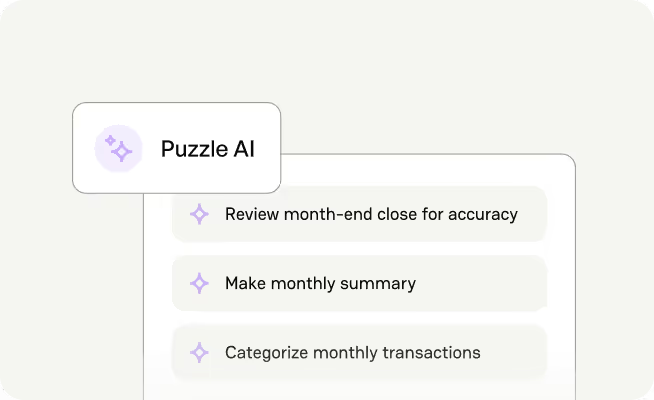
- Manual transaction categorization
- Broken automation rules
- Manual reconciliation workflows
- Spreadsheet exports for analysis
- AI categorizes 98% of transactions
- Automated reconciliation
- AI accuracy checks
- Automated revenue recognition
- Automated schedule generation
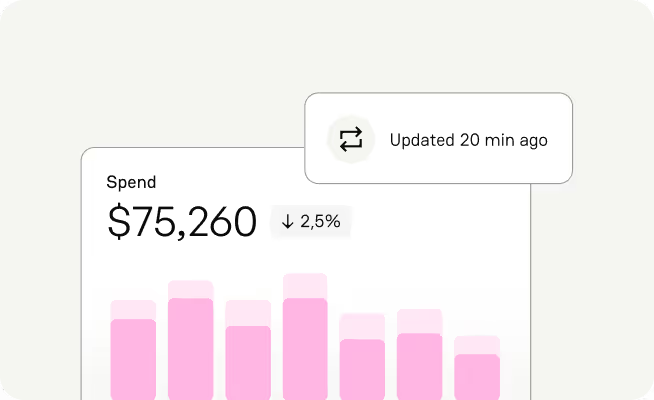
- Month-end reporting cycles
- Spreadsheet exports for insights
- Delayed financial decision-making
- Manual KPIs or need for 3rd-party add-ons
- Live metrics dashboard including cash position, ARR/MRR, Revenue, expenses, burn, runway and more
- Real-time expense, payroll and revenue analysis
- Spot unusual variances in vendors or expenses as they happen
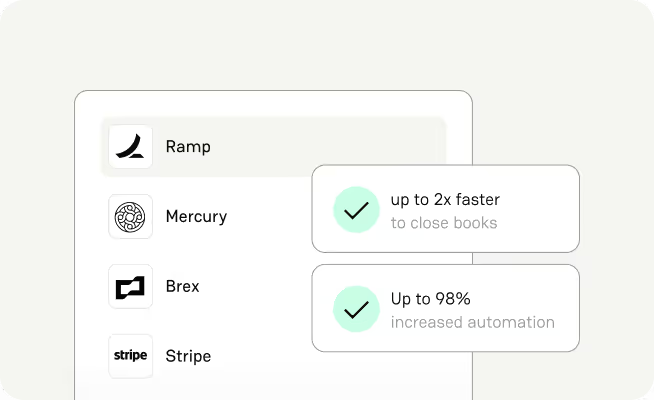
- Frequent sync failures
- Expensive add-ons
- Third-party and spreadsheet workarounds
- 20-year-old architecture
- Native best-in class integrations including Stripe, Brex, Mercury and Ramp
- AI native, real-time data platform
- Modern, flexible API
- Simultaneous Cash & Accrual Accounting
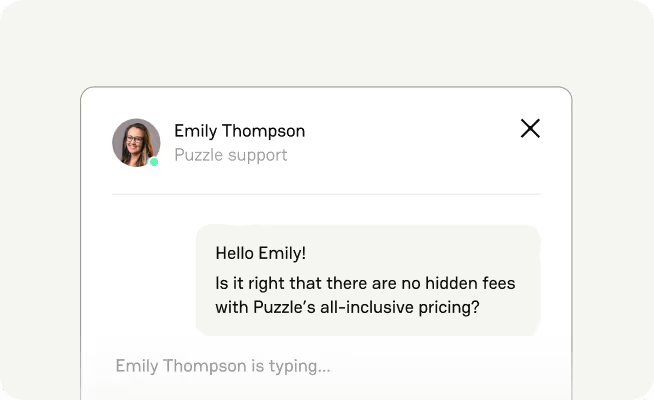
- Surprise price hikes
- Pay extra for basic features and seats
- Frequent customer support complaints
- Transparent, all-inclusive pricing
- No hidden fees or add-ons
- Dedicated support team with experienced CPAs
- True growth partnership
- Get instant responses to questions with Puzzle AI

- Complex, outdated interface
- Weeks of training and confusion to start
- Built for traditional accounting
- Overwhelming for most business owners
- 15-minute setup process
- Intuitive design
- Day-one productivity and insights
Switching is easier than staying stuck
Switching to Puzzle is easier than you think. We'll help you with migration, setup and expert support.

Free expert migration
Completely free migration support - start with a free 30-minute strategy call

Puzzle certified accountants
We'll match you with an expert bookkeeper when you are ready or from day 1

Fast and easy setup
Days, not months, to financial insights: Get set up in as little as 15 minutes















